
Keyword research is a fundamental aspect of Search Engine Optimization (SEO) and content marketing strategies that aims to identify and target specific terms or phrases that users frequently enter into search engines.
Effective keyword research serves as the cornerstone of a successful digital marketing campaign. It involves several key steps and considerations to uncover valuable insights and opportunities.
Here’s an in-depth exploration of the elements, processes, and benefits of keyword research.
What is Keyword Research?
Keyword research involves identifying and scrutinizing the precise terms and expressions individuals employ when seeking information on the internet.

This invaluable understanding empowers the crafting of content, advertisements, and videos tailored to directly meet the search queries of your intended audience.
Aligning with these queries, elevates your website's prominence, drawing in increased visitors and boosting visibility.
You Might Also Like: What is Keyword Mapping?
4 Elements of Keyword Research
There are four main elements that you should pay attention to when conducting keyword research.
Relevance
Understanding the relevance of keywords to your content and target audience is fundamental.
It involves aligning your chosen keywords with the topics, themes, or products/services your audience is searching for. Ensuring that the keywords you target match the intent behind users' searches is key to relevance.
Search Volume
While ranking on the first page for a keyword seems advantageous, if it doesn't attract searches, it won't channel traffic to your site—akin to setting up shop in a desolate area.
The measure of monthly search volume (MSV) indicates the frequency of a keyword's searches across all audiences. Balancing relevance with adequate search volume is crucial for effective keyword selection.
Authority
Google tends to prioritize sources it considers authoritative. This implies the necessity to establish your website as an authority by enriching it with valuable and informative content. Promoting such content to acquire social signals and backlinks is crucial.
If your website lacks authority in the field or if the search engine results pages (SERPs) for a specific keyword are dominated by renowned sources (such as Forbes or The Mayo Clinic), your chances of ranking are lower unless your content stands out exceptionally.
User Intent
Identifying the intent behind user searches is crucial for effective keyword targeting. User intent falls into categories like informational (seeking information), navigational (looking for a specific website), and transactional (intent to purchase). Creating content that aligns with user intent can drive better engagement and conversions.
In essence, these elements form the crux of successful keyword research, ensuring that content not only meets users' needs but also garners visibility and engagement in the highly competitive online landscape.
How to Do Keyword Research Using Niche Finder?
Identifying Seed Keywords
Begin by brainstorming and listing seed keywords relevant to your business, products, or services. These act as a starting point for further research.
Expanding Keyword List
Use Keyword Generate by Niche Finder to expand your list. This tool provides insights into all popular keywords related to your seed keywords.
All related keywords will be displayed according to different sections, such as question categories, comparison categories, Google LSI keywords, etc., to facilitate users to quickly gain market insight.
In Question categories, users can use these keywords to quickly create informational articles without sifting through massive keywords.
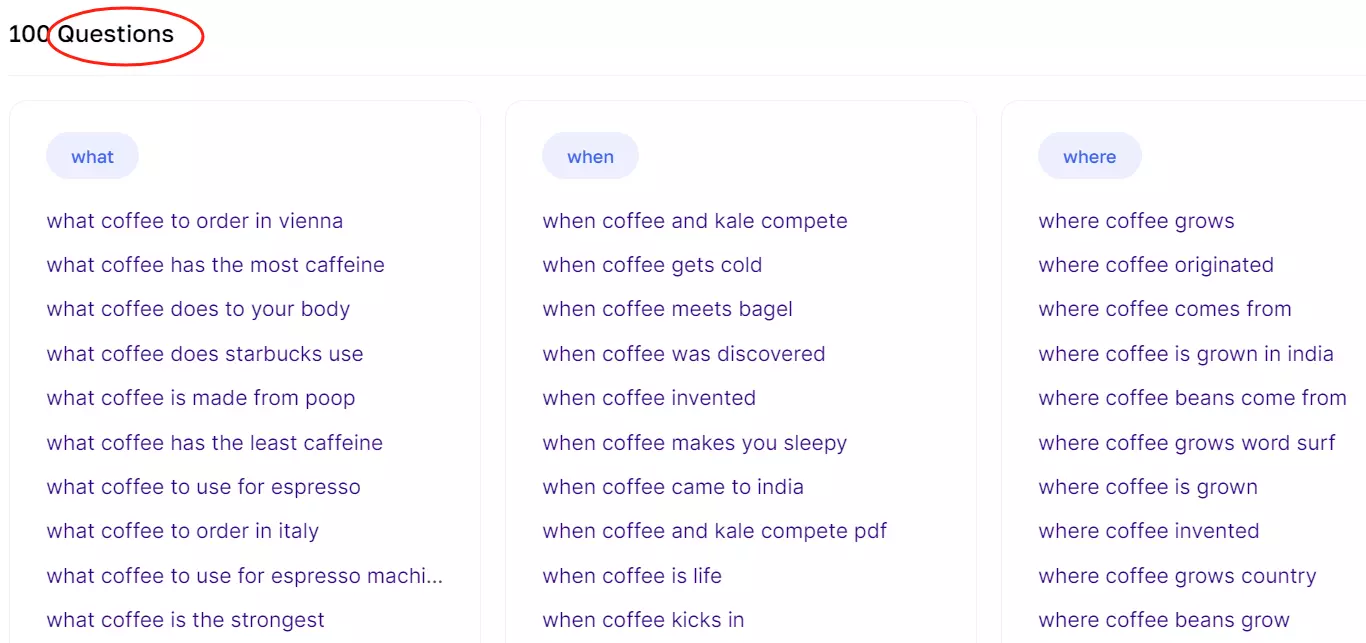
In Prepositions categories, you can find related keywords containing prepositions, such as can, for, with, etc., can also help users find related topics and provide creative ideas.
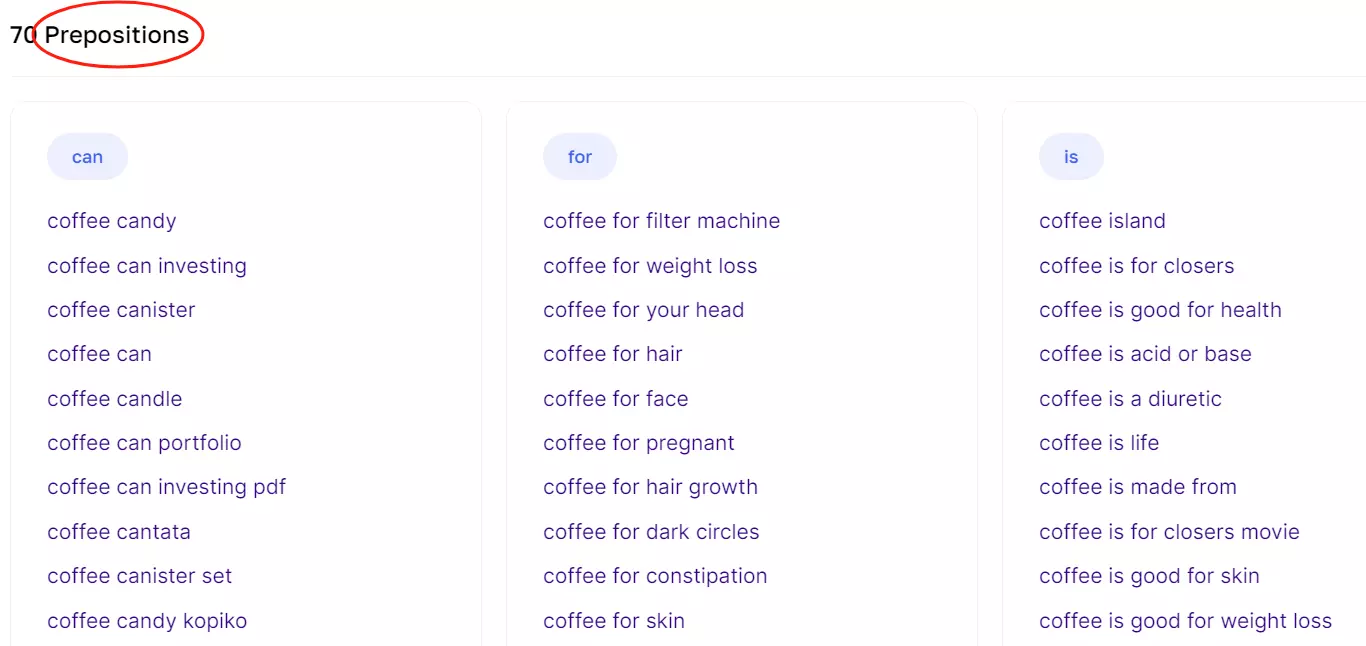
Comparisons categories can help users quickly find relevant keywords for writing contrast Vs type or alternative style.
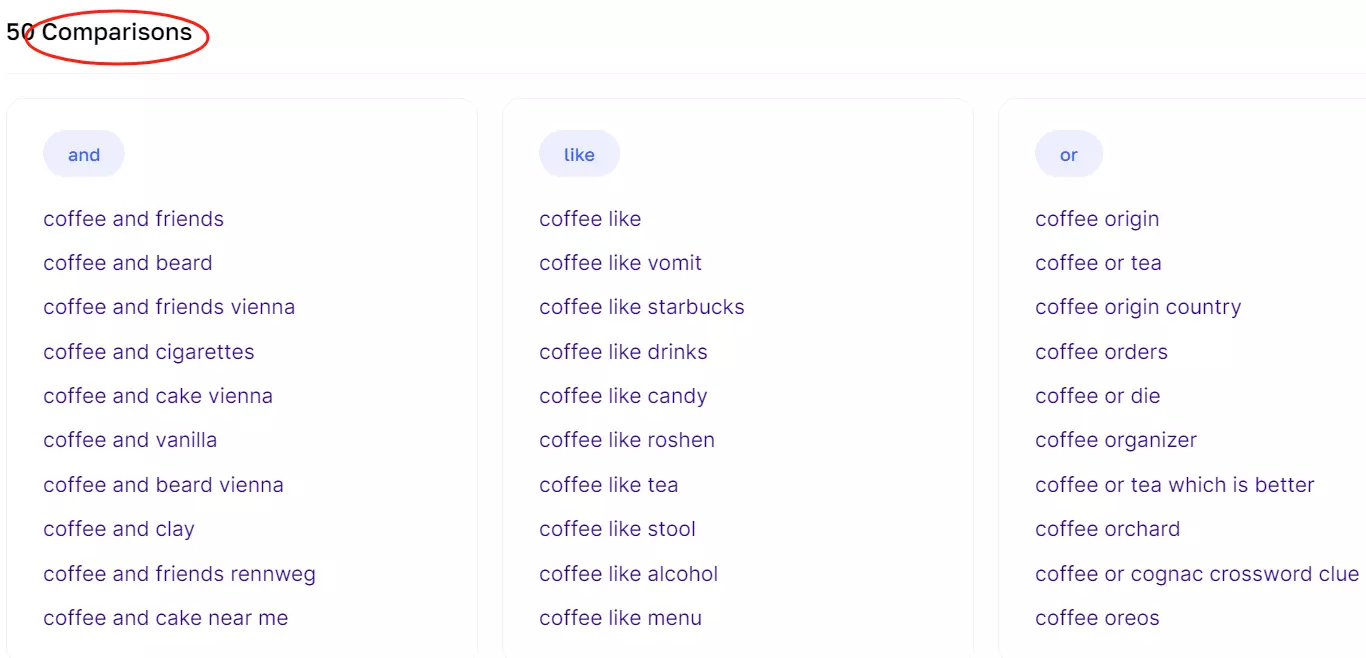
The most interesting part should be alphabetical categories. This part directly simulates Google’s user search results to help users quickly find highly matching LSI keywords.
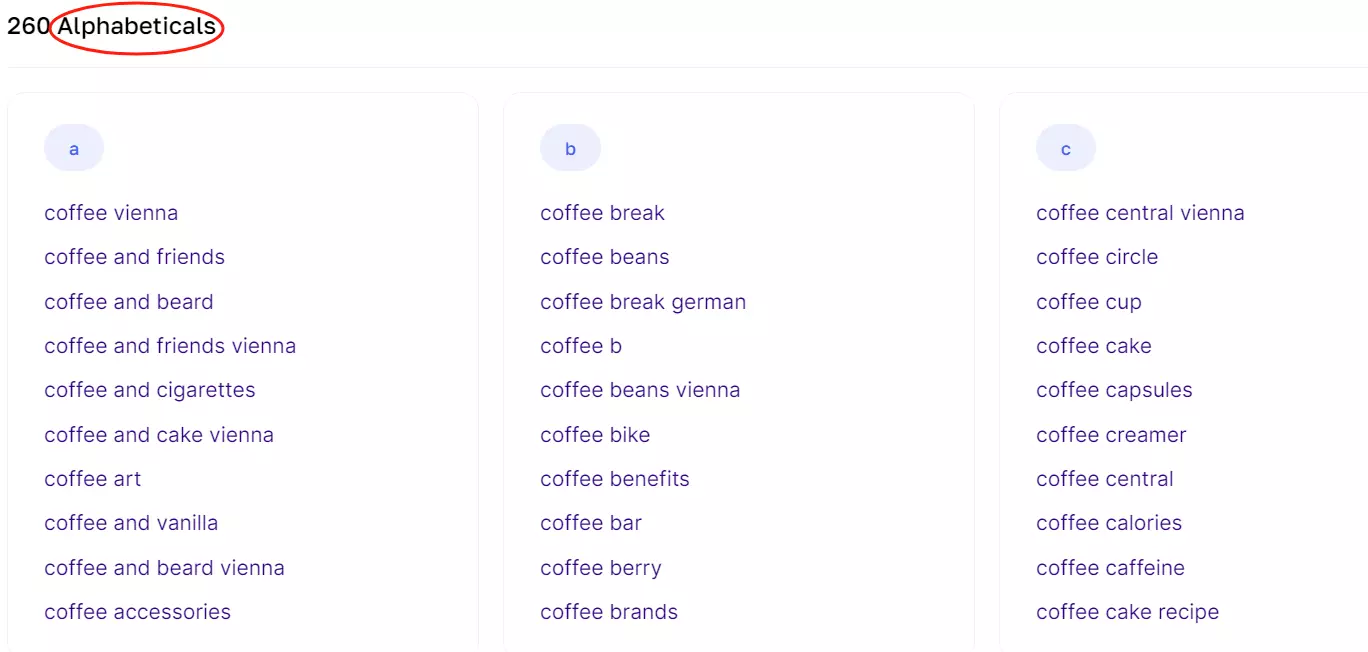
From our Keyword Generate tool, you can easily find the most profitable keywords that you could rank for!
Analyzing Search Intent
Categorize keywords based on user intent—informational, navigational, transactional—to align content accordingly. Understanding intent helps create content that best satisfies users’ needs.
Competitor Analysis
Analyze competitors’ keywords and strategies to identify strengths, weaknesses, and opportunities. This analysis helps refine your keyword strategy.
Keyword Organization
Group related keywords into clusters or themes to streamline content creation and website structure. Our Keywords Collection helps sort out the keywords you want to rank for and organize them better.
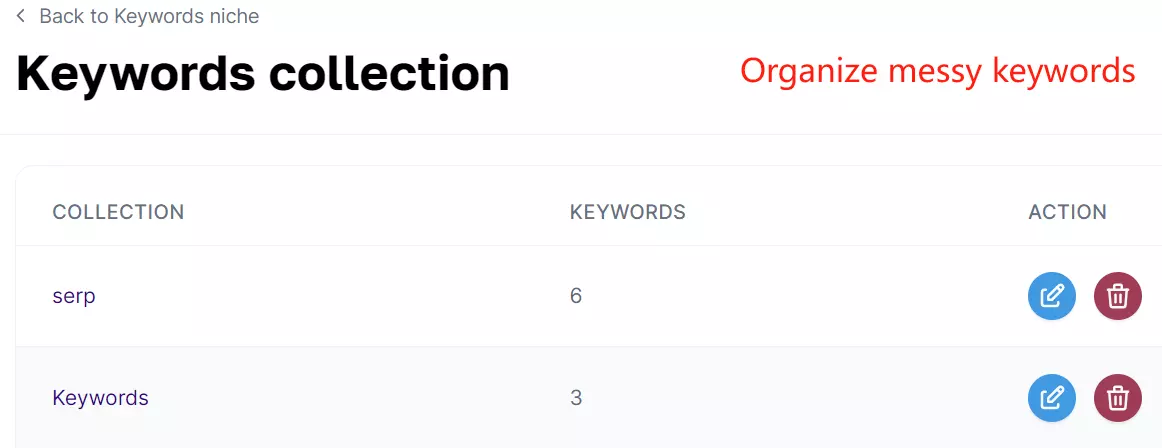
Benefits of Keyword Research
Here are some advantages of doing Keyword Research.
1. Improved Rankings: Targeting the right keywords positively impacts a website’s ranking on search engines, leading to increased visibility and organic traffic.
2. Enhanced User Experience: Tailoring content to match user intent results in a better user experience, leading to increased engagement and potentially higher conversion rates.
3. Cost Efficiency: Effective keyword research helps focus marketing efforts, ensuring resources are allocated to areas likely to yield the best returns.
4. Optimized Content Creation: Creating content around researched keywords ensures relevancy, providing valuable information to users while satisfying search engine algorithms.
Conclusion on Keyword Research
In conclusion, keyword research is the foundation of a successful SEO and content marketing strategy.
By understanding user intent, identifying relevant keywords, and optimizing content, businesses can significantly improve their online visibility, attract organic traffic, and ultimately achieve their marketing objectives.
Continual refinement of keyword strategies based on analytics and market trends is crucial to maintaining a competitive edge in the ever-evolving digital landscape.
If you are looking for a more useful keyword research tool, read our post on Best Keyword Research Tool in 2024.

